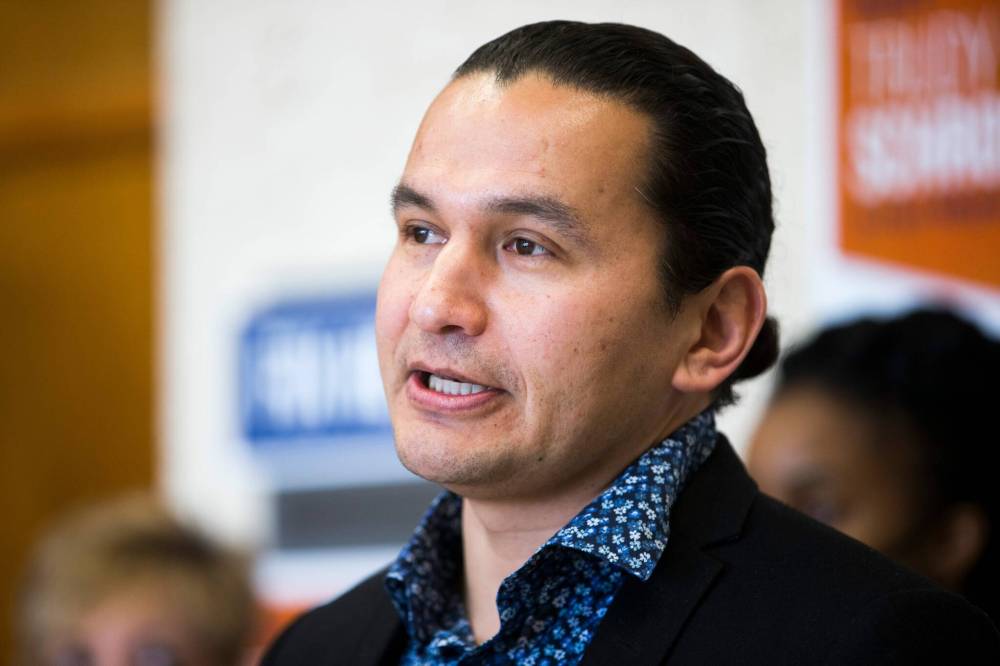Process, export hydrogen through Churchill, NDP says
Advertisement
Read this article for free:
or
Already have an account? Log in here »
To continue reading, please subscribe:
Monthly Digital Subscription
$0 for the first 4 weeks*
- Enjoy unlimited reading on winnipegfreepress.com
- Read the E-Edition, our digital replica newspaper
- Access News Break, our award-winning app
- Play interactive puzzles
*No charge for 4 weeks then price increases to the regular rate of $19.00 plus GST every four weeks. Offer available to new and qualified returning subscribers only. Cancel any time.
Monthly Digital Subscription
$4.75/week*
- Enjoy unlimited reading on winnipegfreepress.com
- Read the E-Edition, our digital replica newspaper
- Access News Break, our award-winning app
- Play interactive puzzles
*Billed as $19 plus GST every four weeks. Cancel any time.
To continue reading, please subscribe:
Add Free Press access to your Brandon Sun subscription for only an additional
$1 for the first 4 weeks*
*Your next subscription payment will increase by $1.00 and you will be charged $16.99 plus GST for four weeks. After four weeks, your payment will increase to $23.99 plus GST every four weeks.
Read unlimited articles for free today:
or
Already have an account? Log in here »
Hey there, time traveller!
This article was published 06/09/2022 (1189 days ago), so information in it may no longer be current.
OTTAWA — The Manitoba NDP are urging the PC government to champion the province as a hydrogen exporter, as Ottawa signs deals for European energy security.
“Developing hydrogen infrastructure, powered by Manitoba Hydro’s hydroelectricity, should be an important part of not only Manitoba’s but also of Canada’s energy future,” NDP Leader Wab Kinew wrote to Prime Minister Justin Trudeau.
In an Aug. 23 letter shared by Kinew’s office, the Opposition leader argues the province’s abundant electricity should be put to processing hydrogen, which could be exported through the Port of Churchill.

MIKAELA MACKENZIE / WINNIPEG FREE PRESS FILES
The Manitoba NDP are urging the PC government to champion the province as a hydrogen exporter.
“Manitoba has a unique opportunity to show the world that we can have an advanced growing economy and do our part to solve the climate crisis.”
Hydrogen is a fuel made from water using electrons, a process that takes massive amounts of energy, which could stem from fossil fuels, hydroelectricity or wind.
The fuel can then be burned just like diesel or natural gas. New Flyer makes buses in Winnipeg for export that are powered by hydrogen. When the fuel is made using green energy, it emits only water when burned, instead of greenhouse gases.
A week ago, Germany and Canada signed an agreement meant to accelerate the development of an international hydrogen market, particularly the form that involves green energy.
The agreement with Germany focuses on using a wind-powered plant in western Newfoundland that would export hydrogen by 2025.
Hydro-rich Quebec and British Columbia have published strategies for green hydrogen, while Alberta is working on an opportunity for blue hydrogen, a form of the fuel that still emits fossil fuels.
Manitoba is comparatively behind.
The City of Selkirk has announced a small-scale deal to have hydrogen produced for local use, made with hydroelectricity. Some other projects are in the early stages, though there is no publicly known large-scale project in Manitoba.
In an Aug. 8 speech announcing joint federal-provincial tables to guide Manitoba’s green transition, the federal Natural Resources Minister Jonathan Wilkinson mentioned hydrogen, but only as a national priority.
His speech mentioned that priority areas haven’t been defined yet, but the examples he gave for Manitoba didn’t include hydrogen. He instead focused on forestry, capturing carbon and mining for the critical minerals needed for things such as electric vehicles.
The NDP argue the province should be pushing to have Manitoba become a hydrogen powerhouse, particularly since the commercial rates Hydro charges private industry are in line with the prices needed to make hydrogen economically viable.
Natural Resources Minister Greg Nesbitt was not made available for an interview Wednesday. Instead, a spokesman wrote that hydrogen would support the government’s published economic, northern and climate plans.
“At this time, it is premature to say Manitoba is ready to sign international trade deals for the export of hydrogen without first developing the capacity,” the spokesman wrote.
“We will continue working closely with the private sector to develop renewable hydrogen production following a timetable that works for Manitobans and the companies that would invest in our province.”
Churchill Mayor Mike Spence said the Arctic Gateway Group would carefully consider any proposal to move hydrogen through its Hudson Bay Railway and port, and said he’s only recently heard of the possibility of shipping the fuel.
Transporting hydrogen generally involves less environmental risk than oil, but Spence said consultation with Indigenous communities would still be necessary.
“There are going to be a lot of ideas in terms of importing and exporting goods through this corridor,” he said Wednesday.
“We’re going to have to gauge these opportunities, and see if they’re the way to go.”
dylan.robertson@freepress.mb.ca




